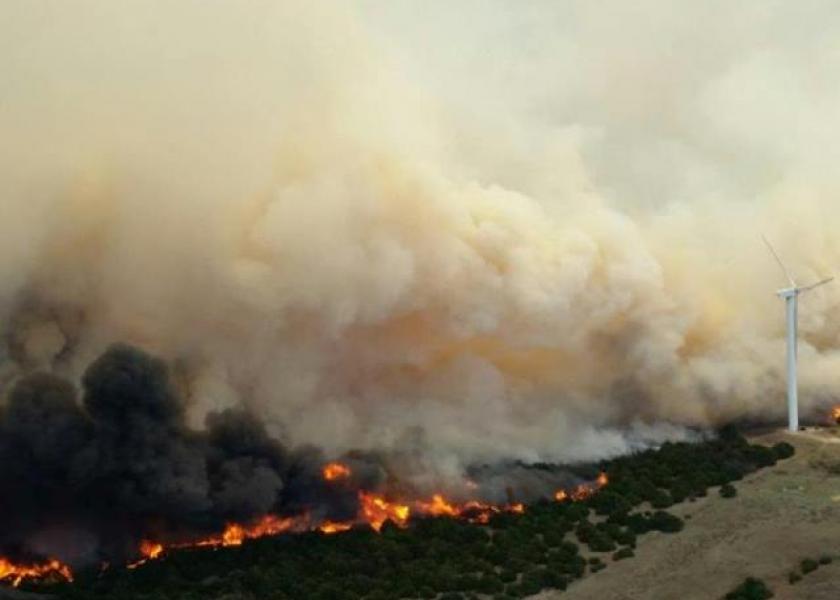Poor Air Quality from Wildfire Smoke can put Livestock, Pets at Risk

Wildfire smoke from Canada returned to the upper Midwest and extended to the Mid-South and Mid-Atlantic this week, resulting in poor air quality in some regions along with reduced visibility.
The National Weather Service (NWS) issued a report on Wednesday, saying “wildfire smoke from Canada will reduce air quality over parts of the Upper/Middle Mississippi Valley, Great Lakes, Western Ohio Valley, Central Appalachians, and Mid-Atlantic, prompting Air Quality Warnings over the area.”
Unhealthy levels of pollutants from the smoke spread across states in those regions including most of Michigan and Wisconsin and parts of Illinois, Indiana, and Ohio, according to tracker AirNow.gov.
The NWS is encouraging anyone with underlying lung conditions or asthma – especially children and the elderly – to limit their time outdoors in those regions affected by wildfire smoke.
The American Veterinary Medical Association (AVMA) advises monitoring pets and farm animals that could also be affected by the smoke.
"If you can see or feel the effects of smoke yourself, you also should take precautions to keep your animals – both pets and livestock – safe," the AVMA encourages on its website.
Animals with cardiovascular or respiratory disease are especially at risk from smoke and should be closely watched during all periods of poor air quality.
Look for the following signs of possible smoke or dust irritation in animals, including:
• Coughing or gagging
• Difficulty breathing, including open mouth breathing and increased noise when breathing
• Eye irritation and excessive watering
• Inflammation of throat or mouth
• Nasal discharge
• Asthma-like symptoms
• Increased breathing rate
• Fatigue or weakness
• Disorientation or stumbling
• Reduced appetite and/or thirst
The wildfires range from British Columbia to Newfoundland and Labrador, and 239 were categorized by the Canadian Interagency Forest Fire Centre (CIFFC) on Tuesday as being “out of control.”
Reuters reports that Canada is wrestling with its worst-ever start to the wildfire season, which has already burned 6.5 million hectares (16 million acres), an area a little bigger than West Virginia.







